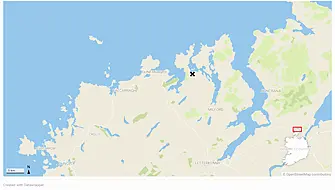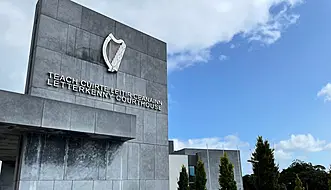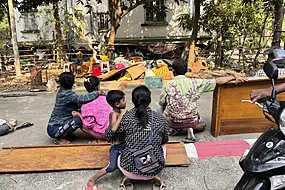Deputy chief medical officer Dr Ronan Glynn has denied that the National Public Health Emergency Team (Nphet) does not trust the public and the way they are using antigen tests.
Speaking on the Pat Kenny show on Newstalk and RTÉ’s Today with Claire Byrne show, Dr Glynn said that the data showed that antigen tests were not being used correctly and people were continuing to engage in high risk activities once they had a negative test result.
“There’s this kind of false assertion that we don’t trust people to use antigen tests properly. I want to put that to bed.”
Dr Glynn pointed out that data showed that 20 per cent of the population had used an antigen test in the past week, but as many as 200,000 people with symptoms who took an antigen test, got a negative result and then did not isolate.
“That’s why we’re so concerned about people using antigen tests - too many people are interpreting a negative result as implying they do not have Covid-19.”
Testing demand
Dr Glynn said it was understandable that people were frustrated when they were unable to book a PCR test, but he said that no testing system in the world would be able to service the current levels of demand.
Covid figures had plateaued in recent days, but at a rate of 20 per cent positivity, it appeared that the public was responding to appeals to cut back on their social contacts, he said. But it would be another week before new figures indicated if the appeals had been successful.
Dr Glynn urged people to “take a step back” and consider the level of demand at the moment. At present it appeared that between 10 per cent and 20 per cent of adults and children in the country had cold or flu or Covid-like symptoms – that was around 700,000 people.
“Of course we’re trying to up the testing and get people tested as quickly as possible, but ultimately the test is not the public health intervention.
“Ultimately at this point in time people’s behaviour will dictate what happens next.”
Dr Glynn urged anyone with symptoms to isolate at home.
Restrictions
It was too early to say whether Nphet would be recommending more restrictions, they would await further data next week and the most recent modelling.
Dr Glynn said that he would like to see the booster vaccine rolled out as quickly as possible, but that it was not a silver bullet, nor was antigen testing. Nationally and internationally there had been a “rush” for a silver bullet, but there wasn’t one.
“We’re all sick and tired of this thing.”
There was no issue with supply of booster vaccines, it was up to the HSE to “get them rolled out as soon as possible".
Pregnant women
Every part of the health system was in a difficult place, he said. Dr Glynn urged anyone not yet vaccinated to do so, especially pregnant women. All the pregnant women who had ended up in ICU were not vaccinated, he said. “Don’t rely on what you’re reading online.”
When asked if people who had been given the Johnson & Johnson vaccine should be careful, Dr Glynn said yes, but that everyone should be careful at the moment.
“We’re telling the entire population to cut down on social contacts.
“I am very concerned and very worried about what the weeks ahead will be like for this country.”
Dr Glynn said that it was not inevitable that people would get Covid-19, it was an avoidable and preventable disease.







